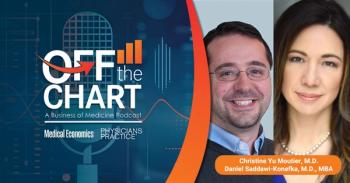
How the new H-1B visa selection hinders international medical graduates
The government’s change to the H-1B process could negatively impact thousands of physicians who wish to practice in rural communities and intensify the growing physician shortage.
The Department of Homeland Security (DHS) published a final rule Jan. 31, 2019, reversing the sequence for the visa selection process of H-1B nonimmigrant workers in certain specialty occupations. The H-1B visa is typically subject to a maximum stay of six consecutive years, subject to exceptions.
Beginning April 1, 2019, the U.S. Citizenship and Immigration Services (USCIS) will select H-1B petitions under the H-1B regular cap and the advanced degree exemption. The rule also establishes an electronic registration requirement for H-1B cap petitioners, which will be suspended until the fiscal year (FY) 2021 cap season.
This new selection process will favor beneficiaries with advanced degrees from U.S. institutions of higher education who are eligible for an exemption from the regular H-1B cap. Unfortunately, this change does not favor international medical graduates (IMGs). IMGs typically do not possess qualifying advanced degrees, as a residency program is not considered the same as an advanced degree for H-1B purposes.
Historically, the H-1B cap numbers available each year have been oversubscribed. Each fiscal year, 65,000 H-1B visa numbers are available under the regular cap for H-1B petitions. Due to high demand for this visa category, the H-1B annual application process is typically subject to a lottery. An additional 20,000 H-1B visas are available under the advanced degree exemption known as the master’s cap. As an example of the prior selection process, by April 11, 2018, USCIS received 190,098 H-1B petitions and completed the lottery for fiscal year 2019. Of those, 95,885 cap eligible petitions were filed under the master’s cap, and 94,213 were filed under the regular H-1B cap.
Pursuant to the old rule, USCIS would count the 20,000 advanced degree petitions first, and any remaining advanced degree petitions would then be included in the 65,000 regular cap.
The new rule reverses the order in which H-1B petitions are counted. USCIS will now first conduct the random selection process for the 65,000 regular cap and then conduct the random selection process for the 20,000 master’s cap. This change means that all H-1B applicants will compete for the first 65,000 visas, and then any advanced degree petitioners who are not selected will also vie for the remaining 20,000 slots.
USCIS projects that this change will result in 5,340 more H-1B beneficiaries with U.S. advanced degrees being selected, an increase of up to 16 percent. If these projections are accurate, what will be a boon to U.S. advanced degree holders could be a significant disadvantage to IMGs, as they generally do not already possess a U.S. advanced degree when they are applying to study in the United States. After all, where there are 5,340 additional advanced degree exemptions, there must be 5,340 fewer H-1B beneficiaries who do not possess U.S. advanced degrees.
Ironically, by acting on President Donald Trump’s Buy American and Hire American Executive Order mandate to “suggest reforms to help ensure that H-1B visas are awarded to the most skilled or highest paid petition beneficiaries,” the DHS may have inadvertently excluded a significant portion of the very individuals it intends to benefit: those who seek to provide critically needed medical care.
In a letter to DHS, the American Medical Association (AMA) writes, “This change may negatively impact the thousands of non-U.S. citizen IMGs seeking to obtain an H-1B visa each year and work in rural and underserved areas of this country and further exacerbate the physician workforce shortage.” Citing 2016 data from the U.S. Department of Labor’s Office of Foreign Labor Certification, the AMA noted:
“U.S. employers were certified to fill approximately 10,500 H-1B physician positions nationwide. In 2016, of the 897,783 practicing physicians in the United States, 206,030 (23 percent) did not graduate from a U.S. or Canadian medical school. Thus, the change in the H-1B visa beneficiary selection process could have the unintended consequence of limiting the ability of our non-U.S. citizen IMGs to obtain H-1B visas, as they did not receive an advanced degree from a U.S. institution of higher education.”
Only time will tell how, and to what extent, IMGs will be affected under the new rule. Certainly, it would be helpful for medical practice owners to consider requesting that USCIS include medical residency programs within the advanced degree exemption for H-1B visas to help address severe physician shortages in underserved areas in particular. For that matter, it would also be useful to support set asides or cap exemptions in the H-1B category, particularly for those asking to serve in medically underserved areas.
In the meantime, IMGs should consider consulting with a lawyer to explore all of their available immigration options. The road to licensure certainly has its challenges, but with careful planning it can still be navigated successfully.
Kathleen Walker’s immigration law practice focuses on business and family-based immigration, consular processing, employer sanctions/ worksite enforcement, immigration audits, security checks, waivers, admissibility, and citizenship and naturalization. She is a prior national president and general counsel to the American Immigration Lawyers Association
Matthew Martinez’s practice focuses on representing employers in all matters of business immigration. Matthew is an active member of the American Immigration Lawyers Association and frequent speaker on immigration
matters affecting employers. He also lectures international students at major universities regarding theirpost-graduation employment options.
Newsletter
Optimize your practice with the Physicians Practice newsletter, offering management pearls, leadership tips, and business strategies tailored for practice administrators and physicians of any specialty.








